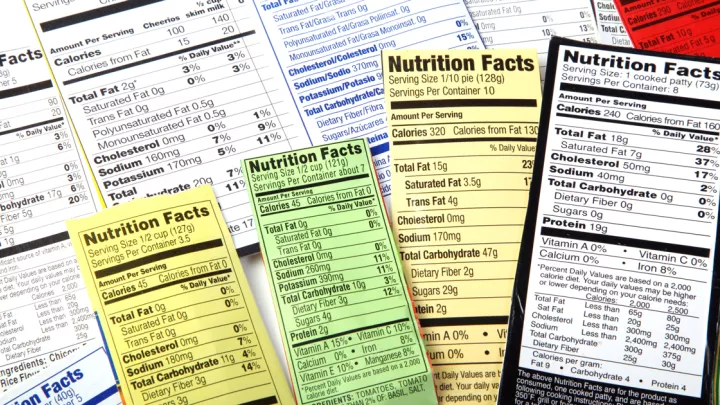How to choose your cooking oils wisely

Good fats, bad fats. Is there really a difference? Olive oil, avocado, coconut, peanut, canola, soybean and more – there are so many choices. The next time you reach for a cooking oil, registered dietitian Jacqueline Matsunaga, MMN, RDN, LMNT, offers some advice to help you choose wisely and use oils in a heart-healthy way.
"Not all dietary fat is created equal but eating the right fats can be heart-healthy and may provide additional health benefits," says Matsunaga. "For good heart health, the majority of fats you eat should be a combination of monounsaturated and polyunsaturated fats."
Here's why.
Saturated fats, commonly thought of as solid fats at room temperature are considered less healthy fats. This is because they have been linked to raising total cholesterol levels and LDL (bad cholesterol) in your blood, which can increase your risk of heart disease. Saturated fats are found in butter, meat, milk and other animal fats. Tropical oils, such as palm and coconut oils are also high in saturated fats.
"Coconut oil has received a lot of attention recently and has been touted for its health benefits, but most of these have not proven to be true," says Matsunaga. "Since it's a saturated fat, it should be used sparingly."
A good rule of thumb to remember, your total fat intake should be limited to 25% to 35% of your total calories and saturated fats should comprise only about 6%, which is 13 grams per day on a 2,000 calorie diet, notes Matsunaga. Regardless of the type of fat – good or bad – 1 gram of fat always equals nine calories.
Trans fats are the least healthy of the fats. These may be found in commercially baked goods, margarine and highly processed foods and should be avoided whenever possible. Partially hydrogenated oils are a primary source of trans fats. Trans fats raise your LDL and increase your risk for heart disease, stroke and diabetes. Limit the number of trans fats in your diet to less than 1% of your total daily calories. For a 2,000 calorie diet, fewer than 20 calories or 2 grams, should come from trans fats.
Monounsaturated fats have been shown to reduce cholesterol levels, lower heart disease, stroke and cancer risk, decrease inflammation and help maintain your body's cells. Oils high in monounsaturated fats include olive, avocado, peanut, canola, sesame and almond.
Polyunsaturated fats can help reduce LDL cholesterol levels, lower your risk of heart disease and stroke and help reduce inflammation. Oils high in polyunsaturated fats include soybean, corn, sunflower and safflower. These fats can also be found in walnuts, flax seeds, and in fatty fish such as salmon, mackerel and herring. Polyunsaturated fats provide essential fatty acids, including omega-3 and omega-6, which your body can't make, so they must come from food.
"A balance of both monounsaturated and polyunsaturated fats, in place of saturated fat in your diet maximizes your health and reduces your risk of heart disease, so strive to use both types," says Matsunaga.
What cooking oils to use when
Some other things you might think about when choosing a cooking oil or cooking oil spray is what you will be using it for.
- Extra virgin olive oil has a fairly low smoke point (about 375 degrees) compared to other oils, so use it for low-temperature cooking, such as sauteing vegetables. Highly refined, regular or light olive oil, on the other hand, can withstand heat up to 450 degrees
- The purest and most flavorful form of olive oil is extra virgin olive oil. Virgin olive oil has higher acidity, a more subtle flavor and typically undergoes a heating process to extract the oil. Regular olive oil is a blend of virgin olive oil and refined olive oil and has the least nutrients, flavor and aroma, but is useful for all-purpose cooking
- Avocado oil has a creamy, buttery, nutty flavor and is great for salad dressings as well as cooking because it has a high smoke point
- Canola and peanut oils also have a higher heat tolerance and can be used for frying (although not a recommended cooking method) and preparing foods that require higher cooking temperatures
- Walnut and almond oils have a light and nutty flavor and are good in salad dressings or in place of creamy, high-fat salad dressings
Other healthy tips:
- If trying to be mindful and limit calorie intake, brush on oil rather than pouring it to reduce the amount used, or try cooking or oil sprays
- Use cooking sprays or oil sprays rather than oils or butter to reduce the amount you will use
- Add flavor, juiciness and tenderness to your meats by marinating them with a combination of olive oil, vinegar, lemon juice or wine and spices
While there is often a lot of negative connotation around fats, the important thing to remember is that our bodies need fat to function properly.
"Fat is a source of energy for our body and is important for the structure and function of our cells," explains Matsunaga. "Fats are a source of essential fatty acids and help our body absorb nutrients, such as the fat-soluble vitamins A, D, E and K If you follow some of the tips above, you can enjoy fat in your diet as part of a heart-healthy diet."





